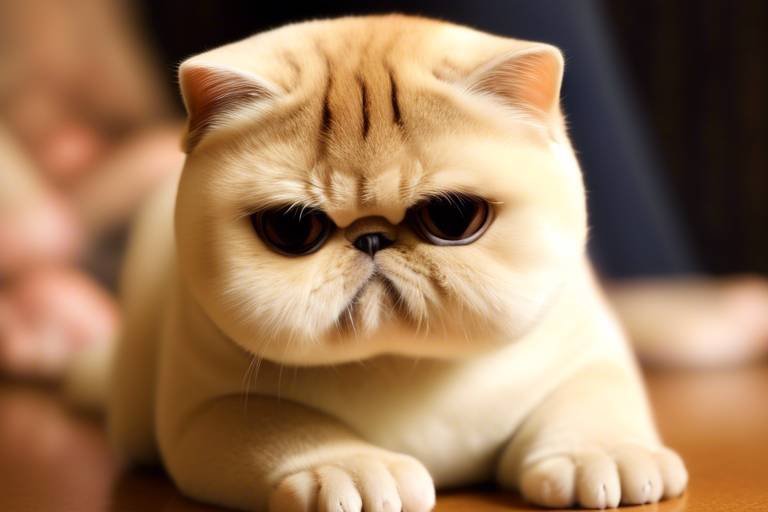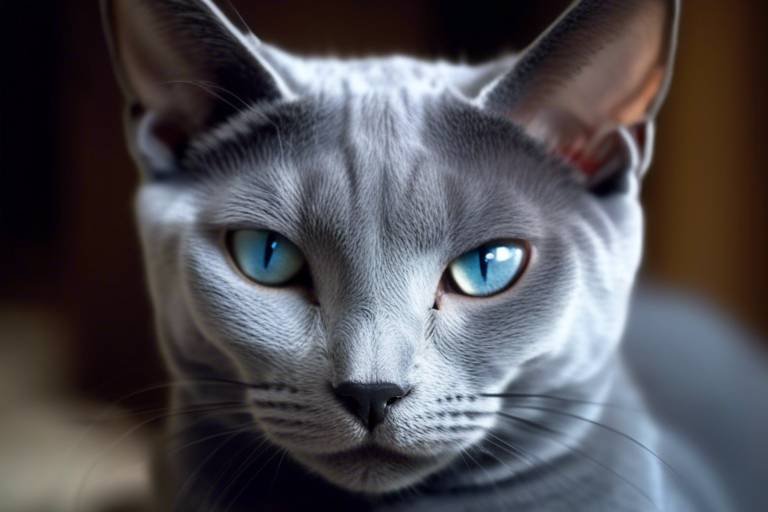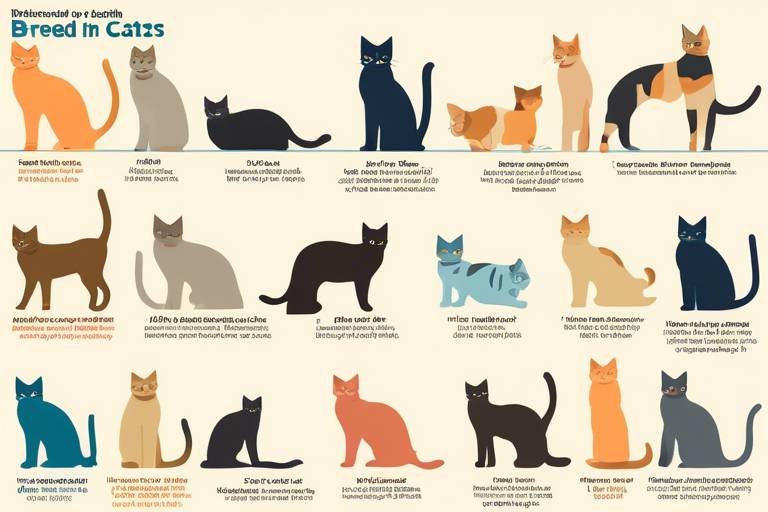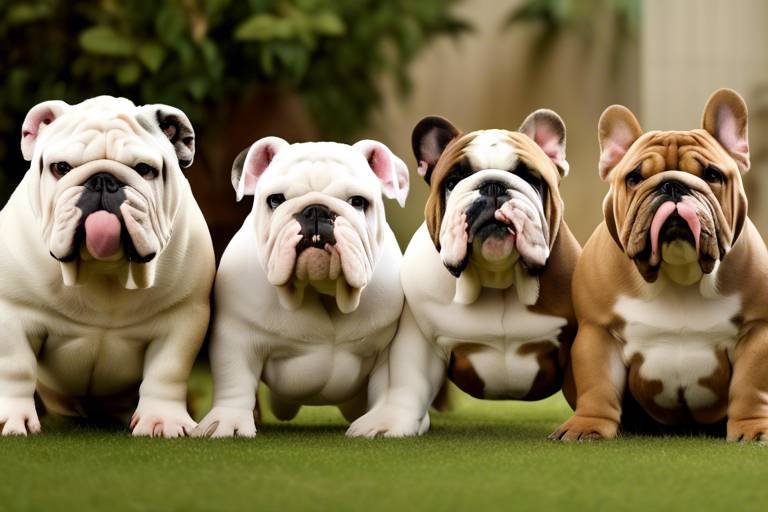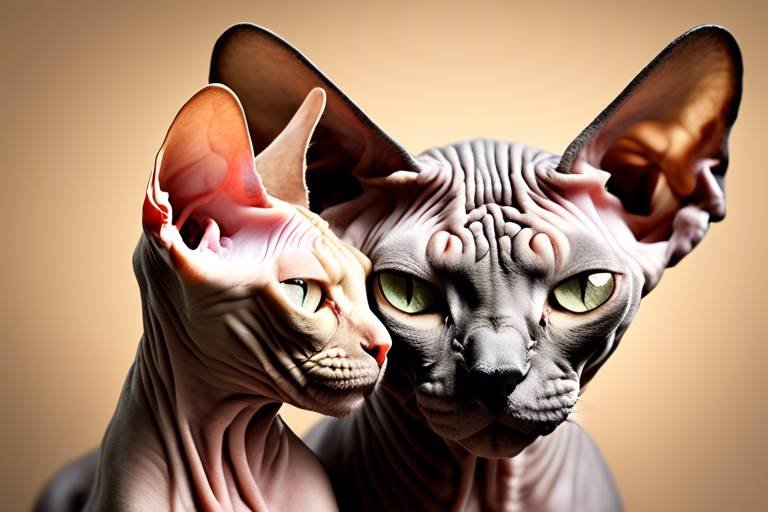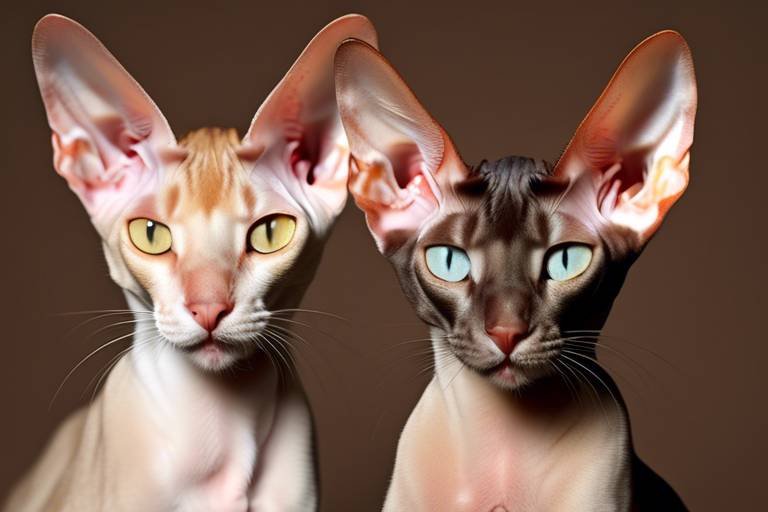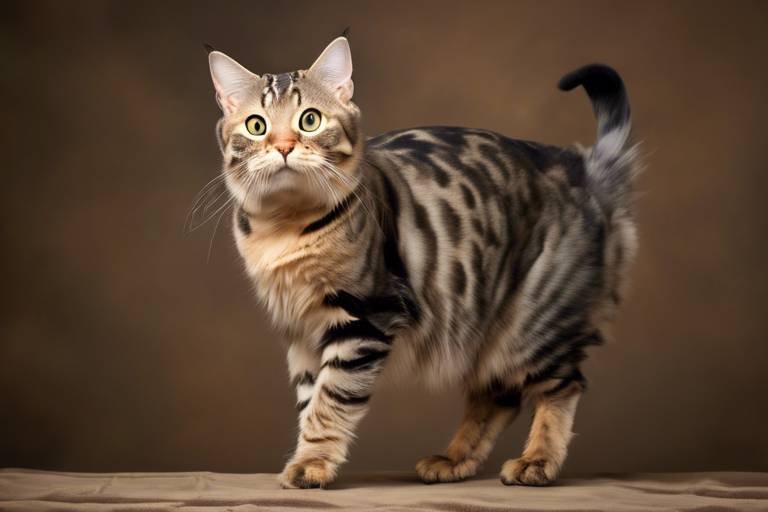The Affectionate Nature of the Exotic Shorthair
Welcome to the enchanting world of the Exotic Shorthair, a breed that epitomizes love and companionship. These endearing felines are more than just pets; they are family members who bring warmth and joy into our lives. With their plush coats, round faces, and captivating personalities, they have a way of stealing hearts almost instantly. But what truly sets them apart is their affectionate nature, making them ideal companions for both families and individuals alike.
The Exotic Shorthair is not just another cat breed; it’s a delightful blend of beauty and temperament. Originating from the Persian breed, they were developed to create a short-haired version that retained the Persian’s charm. Their physical traits are striking, featuring a broad head, short muzzle, and large, expressive eyes that can melt anyone's heart. But beyond their adorable looks lies a personality that is equally captivating. This breed is known for its gentle demeanor, making them perfect for households with children and other pets.
Now, let’s dive deeper into what makes the Exotic Shorthair such a beloved breed. Their affectionate nature is not just a trait; it’s a lifestyle. These cats thrive on human interaction and are known for their loyalty. They will often follow you around the house, seeking your attention and companionship. Have you ever had a pet that just seems to know when you need a cuddle? That’s the Exotic Shorthair for you! Their purring can be incredibly soothing, almost like a gentle reminder that they are there for you, no matter what.
In addition to their loving nature, Exotic Shorthairs are also playful. They enjoy engaging in activities that stimulate their minds and bodies. Whether it’s chasing a feather toy or playing hide and seek around the house, their playful antics can bring laughter and joy to any home. This playfulness not only keeps them healthy but also strengthens the bond between the cat and its owner. Imagine coming home after a long day and being greeted by your furry friend, ready to play and shower you with affection. It’s moments like these that make life with an Exotic Shorthair so special.
One of the remarkable qualities of the Exotic Shorthair is their adaptability. They can adjust to various living situations, whether it’s a bustling family home or a cozy apartment. Their calm demeanor allows them to fit in seamlessly, making them wonderful companions for people of all ages. They are known to be patient and understanding, especially with children, which makes them a perfect addition to any family. If you’re wondering whether they will get along with your lifestyle, the answer is a resounding yes!
Moreover, Exotic Shorthairs are typically friendly and sociable with other pets. They have a knack for making friends, whether it’s with fellow cats or even dogs. Their easygoing nature allows them to coexist peacefully, creating a harmonious environment in your home. This breed’s ability to bond with others enhances their affectionate personality, making them not just a pet, but a cherished member of the family.
In summary, the Exotic Shorthair is a breed that combines beauty, affection, and adaptability in one delightful package. Their loving temperament and playful spirit make them the perfect companions for anyone looking to add a furry friend to their life. If you’re considering bringing one into your home, prepare for a journey filled with love, laughter, and endless cuddles.
- What is the average lifespan of an Exotic Shorthair?
The average lifespan of an Exotic Shorthair is typically between 12 to 15 years, but with proper care, they can live even longer. - Do Exotic Shorthairs require a lot of grooming?
While they have a plush coat, Exotic Shorthairs require less grooming compared to their Persian relatives. Regular brushing, about once a week, is usually sufficient to keep their fur healthy. - Are Exotic Shorthairs good with children?
Absolutely! Their gentle and affectionate nature makes them excellent companions for children. They are patient and enjoy interacting with kids. - Can Exotic Shorthairs live with other pets?
Yes, they are known for their friendly demeanor and can coexist peacefully with other cats and even dogs.
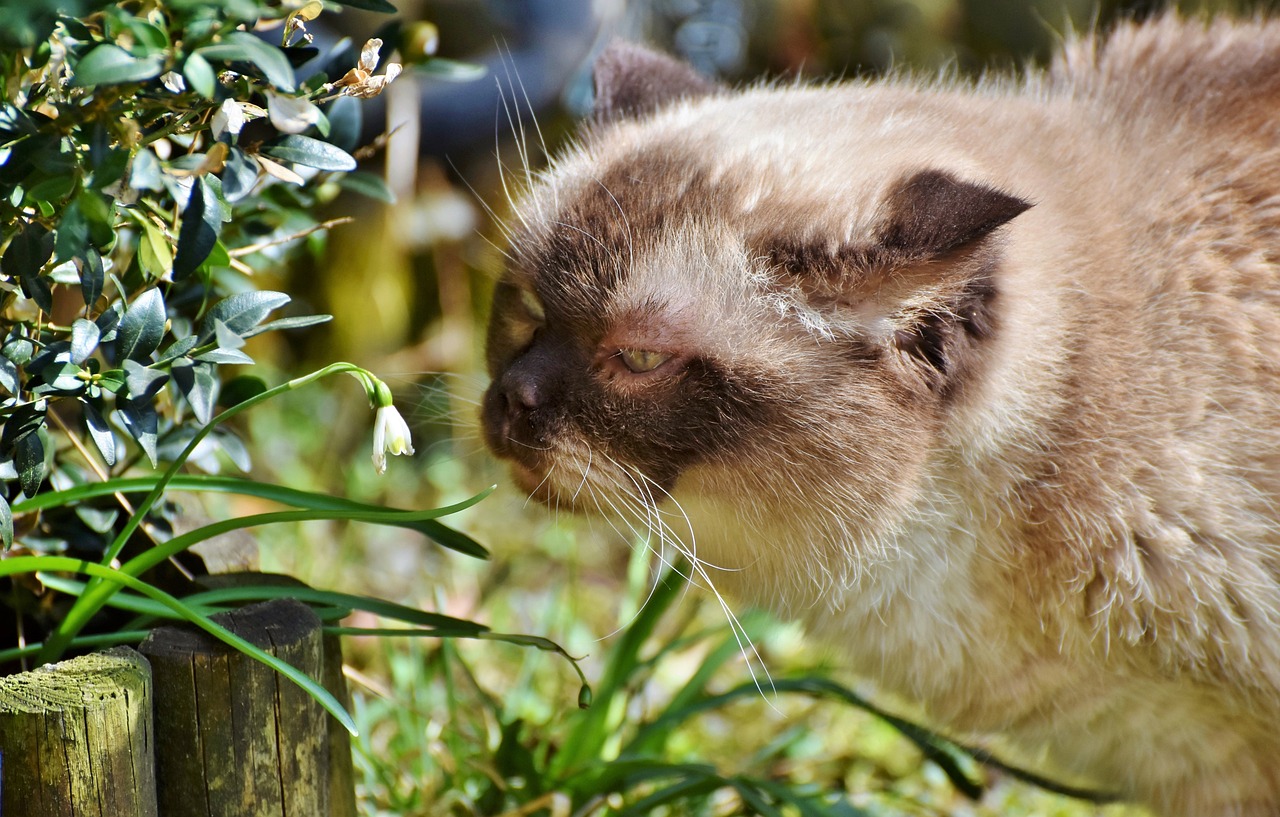
Understanding the Exotic Shorthair
The Exotic Shorthair is not just another cat breed; it's a delightful companion that brings a unique charm to any household. Originating from the desire to create a short-haired version of the beloved Persian, these cats have captured the hearts of many with their plush coats and round, expressive faces. Imagine a fluffy cloud with a purring engine—this is what you get with an Exotic Shorthair. Their origins can be traced back to the 1950s when breeders sought to combine the Persian's stunning looks with the ease of care found in short-haired breeds. The result? A breed that embodies the best of both worlds.
Physically, Exotic Shorthairs are characterized by their stocky build, short legs, and a broad head that gives them an adorable, teddy bear-like appearance. Their eyes are large and expressive, often in shades of copper or blue, which adds to their overall cuteness. The breed’s coat is dense and plush, coming in a variety of colors and patterns, making each Exotic Shorthair a unique masterpiece. It's like having a piece of art that comes to life and curls up in your lap!
But what really sets the Exotic Shorthair apart is their personality. These cats are known for their calm demeanor and affectionate nature. They tend to be more laid-back than their Persian cousins, making them ideal for families and individuals alike. Their gentle temperament means they often get along well with children and other pets, which is a huge plus for anyone looking to add a furry friend to their home. They are not just pets; they are family members who bring joy and love into the lives of their owners.
In summary, the Exotic Shorthair is a breed that combines beauty, charm, and a loving personality. If you’re looking for a feline friend that will cuddle with you on the couch after a long day or playfully chase after a feather toy, this breed might just be the perfect match for you. Their unique characteristics and affectionate nature make them stand out in the world of cat breeds, ensuring that they are not only companions but also cherished members of the family.
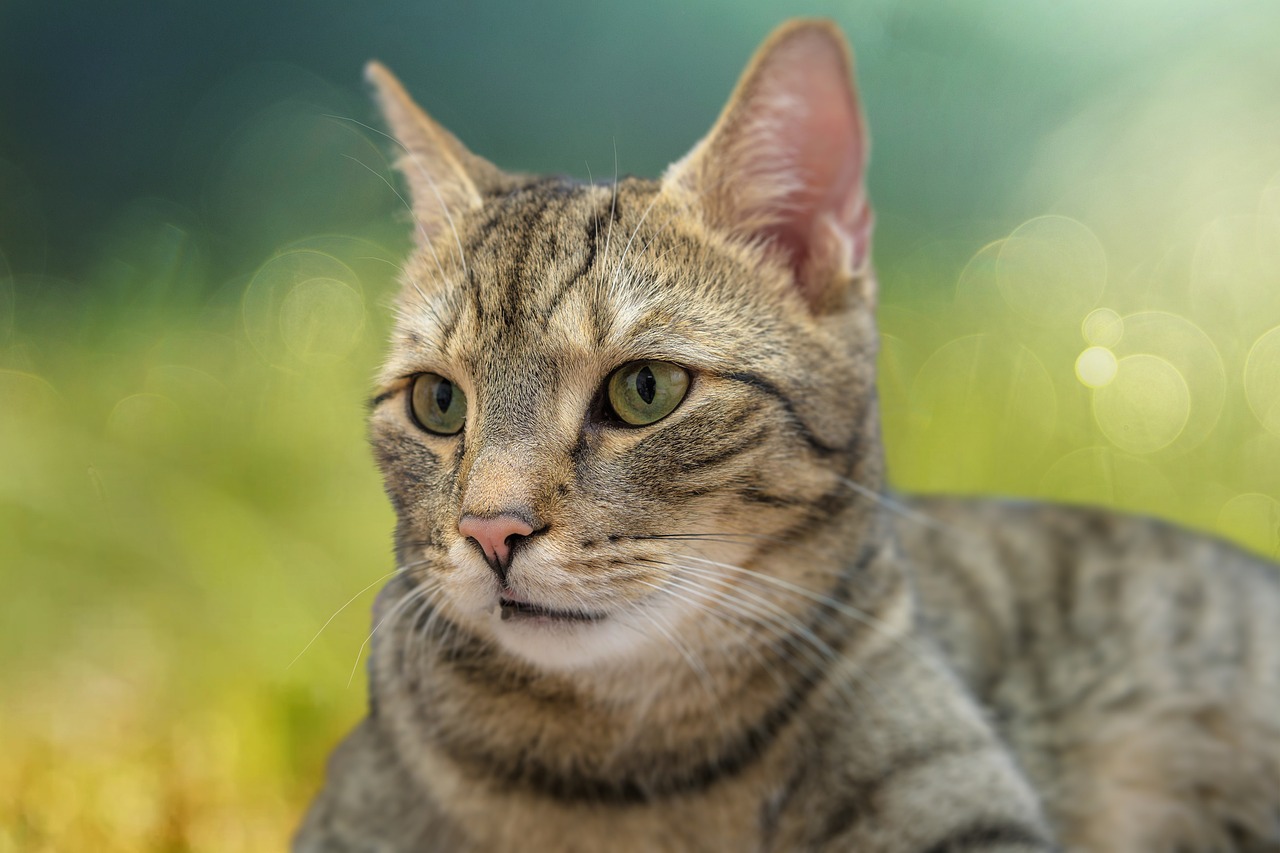
Temperament and Personality Traits
The Exotic Shorthair is not just a pretty face with its plush coat and round features; it has a personality that can melt even the coldest of hearts. Known for their affectionate and gentle nature, these cats are the epitome of cuddly companions. Imagine coming home after a long day, and there's your Exotic Shorthair, waiting at the door, ready to greet you with a soft purr that feels like a warm hug. Their ability to bond with humans is truly remarkable, making them not just pets, but genuine family members.
Exotic Shorthairs are incredibly sociable. They thrive on human interaction and enjoy being part of the family dynamic. Unlike some breeds that prefer solitude, these cats actively seek out companionship. They have a playful side that keeps them young at heart; whether it's chasing after a feather toy or playfully batting at a string, their antics are sure to bring a smile to your face. It's as if they have an innate understanding of how to lift your spirits!
One of the most endearing qualities of the Exotic Shorthair is their loyalty. They form strong bonds with their owners, often following them around the house like a shadow. This characteristic makes them feel like a true companion, always there to share in your joys and sorrows. Have you ever felt like your pet just knows when you're feeling down? That's the Exotic Shorthair for you! Their gentle nudges and soft purring can be incredibly comforting during tough times.
Playtime with an Exotic Shorthair is not just about exercise; it's a wonderful way to strengthen your bond. These cats love engaging in activities that stimulate their minds and bodies. From interactive toys to simple games of chase, their playful nature is infectious. When you see them leap into the air to catch a toy, it’s a reminder that joy can be found in the simplest of things. Plus, spending time playing with your Exotic Shorthair is a fantastic way to unwind and connect after a hectic day.
Exotic Shorthairs are known for their adaptability, making them excellent companions for families of all shapes and sizes. Whether you live in a bustling household with kids or a serene apartment, these cats can adjust to various environments with ease. They are generally calm and composed, which helps them fit into different family dynamics. If you have children, you’ll find that Exotic Shorthairs are patient and tolerant, often enjoying the attention and love showered upon them.
What’s even more impressive is their ability to get along with other pets. Exotic Shorthairs typically exhibit a friendly demeanor, whether they are interacting with dogs or other cats. Their sociable nature allows them to coexist peacefully with their furry companions, making them a great addition to multi-pet households. Imagine a scene where your Exotic Shorthair and your dog curl up together for a nap—it's a heartwarming sight that showcases their gentle spirit.
In summary, the temperament and personality traits of the Exotic Shorthair make them a truly special breed. Their affectionate nature, playful spirit, and adaptability to family life ensure that they are not just pets, but beloved members of your family. If you're looking for a companion who will bring joy, laughter, and unconditional love into your life, the Exotic Shorthair might just be the perfect fit.
- Are Exotic Shorthairs good with children?
Yes! They are known for their gentle and tolerant nature, making them great companions for kids. - How much grooming do Exotic Shorthairs require?
Regular grooming is essential to keep their coat healthy and tangle-free, but they require less maintenance than long-haired breeds. - Do Exotic Shorthairs get along with other pets?
Absolutely! They are sociable and typically get along well with other cats and dogs. - What is their personality like?
Exotic Shorthairs are affectionate, playful, and loyal. They love being around people and thrive on companionship.
Social Behavior with Humans
The Exotic Shorthair is not just a pet; they are a loving companion that thrives on human interaction. These delightful felines have a unique way of forging bonds with their owners, often displaying a loyalty that rivals that of the most devoted dog. Imagine coming home after a long day, and there they are, waiting by the door with their round, expressive eyes, ready to greet you with a gentle nuzzle. This affectionate behavior is what sets them apart and makes them such cherished members of the family.
One of the most endearing aspects of the Exotic Shorthair's personality is their need for companionship. They are not the type of cat that will simply lounge around and ignore you. Instead, they actively seek your attention, often following you from room to room. This behavior can be likened to a small child who wants to be involved in everything their parent is doing. They thrive on the interaction, and their playful antics can bring a smile to even the gloomiest of days. Whether it’s curling up on your lap while you read a book or playfully batting at your fingers as you type, they are always looking for ways to connect.
Moreover, their gentle nature makes them suitable for families with children. Exotic Shorthairs are typically very tolerant and patient, making them great playmates for kids. They understand how to engage in playful activities without being too rough, which is essential in a household with young ones. This gentle demeanor not only fosters a loving environment but also teaches children about empathy and responsibility towards animals.
In addition to their affectionate behavior, Exotic Shorthairs have a knack for sensing their owner's moods. They can often tell when you're feeling down or stressed and will instinctively offer their comforting presence. This ability to empathize with human emotions adds another layer of depth to their social interactions. Just picture this: after a long, exhausting day, you plop down on the couch, and your Exotic Shorthair snuggles up beside you, purring softly, as if to say, "I'm here for you." This kind of connection is priceless and is a testament to their loving nature.
It's also worth noting that these cats are quite vocal. They communicate their needs and desires with a variety of sounds, from soft trills to gentle meows. This vocalization is their way of engaging with you, letting you know they want to play, cuddle, or perhaps just be near you. Their ability to express themselves vocally enhances the bond you share, making every interaction feel special.
In summary, the Exotic Shorthair's social behavior with humans is characterized by their affectionate nature, playful spirit, and remarkable ability to connect on an emotional level. They are not just cats; they are family members who enrich our lives with their love and companionship. If you’re looking for a pet that will shower you with affection and become a true part of your family, the Exotic Shorthair might just be the perfect fit.
- Do Exotic Shorthairs get along with children? Yes, they are known for their gentle and tolerant nature, making them great companions for kids.
- How much attention do Exotic Shorthairs need? They thrive on companionship and enjoy being around their owners, so regular interaction is essential.
- Are Exotic Shorthairs vocal cats? Yes, they are quite vocal and use various sounds to communicate their needs and desires.
- Can Exotic Shorthairs adapt to different living environments? Absolutely! They are adaptable and can adjust well to various family dynamics and living situations.
Affectionate Playfulness
When you think of the Exotic Shorthair, you might picture a cuddly ball of fluff with a charming face, but there's so much more to these delightful cats than meets the eye. Their is one of the many traits that make them such wonderful companions. Imagine coming home after a long day, and the first thing you see is your Exotic Shorthair bouncing around, ready to engage in a playful romp. It's like having a little comedian in your living room, always eager to entertain!
Exotic Shorthairs have a natural inclination for play, and this is not just a way for them to burn off energy; it's a crucial part of their bonding process with their humans. Whether it's chasing a feather toy, pouncing on a laser dot, or engaging in a game of hide-and-seek, these activities are essential for their mental and physical well-being. It's during these playful moments that you can truly see their personalities shine. They exhibit a unique blend of curiosity and affection, often seeking your involvement in their games.
One of the most endearing aspects of their playfulness is how they often look to their owners for cues. They may bring you a toy, drop it at your feet, and look up at you with those big, round eyes, as if to say, “Come on, let’s play!” This interactive play not only strengthens your bond but also provides them with the mental stimulation they need to stay happy and healthy. It's a delightful dance between owner and pet, where both parties learn to communicate and enjoy each other’s company.
Moreover, engaging in playtime with your Exotic Shorthair can be incredibly rewarding. It’s not just about tossing a toy; it’s about creating shared experiences that deepen your relationship. For example, you might find that your cat has a favorite toy or a specific game they love, and discovering these preferences can lead to countless hours of joy. The laughter that comes from watching your cat perform their silly antics is priceless, and it’s moments like these that remind you why you chose to bring an Exotic Shorthair into your life.
In addition to their playful nature, Exotic Shorthairs are known for their gentle demeanor. They tend to have a laid-back attitude, making them less likely to get overly excited or aggressive during play. This means that even if they are having a wild moment, they are still safe to engage with, making them perfect for families with children or other pets. Their ability to balance playfulness with gentleness is a hallmark of their breed, and it’s one of the many reasons why they are such cherished companions.
To ensure that your Exotic Shorthair stays engaged and entertained, consider setting aside dedicated playtime each day. Here are a few suggestions for activities that can enhance their playful nature:
- Interactive Toys: Use toys that require your cat to think and engage, such as puzzle feeders or toys that mimic prey.
- Laser Pointers: These can provide a great workout, allowing your cat to chase and pounce.
- Feather Wands: A classic favorite that encourages jumping and stalking behavior.
- Hide-and-Seek: Hide a toy or treat and encourage your cat to find it, stimulating their natural hunting instincts.
Ultimately, the affectionate playfulness of the Exotic Shorthair is a beautiful blend of fun and love. It’s a reminder that these cats are not just pets; they are family members who thrive on interaction and companionship. So, grab a toy and get ready for some laughter-filled moments with your furry friend!
Adaptability to Family Life
The Exotic Shorthair is not just a pretty face; they are also remarkably adaptable, making them perfect companions for families of all shapes and sizes. Imagine a cat that seamlessly integrates into your home, adjusting to the hustle and bustle of family life while still maintaining its unique personality. These cats are like the chameleons of the feline world, effortlessly blending into different environments. Whether you have a bustling household filled with children or a quieter space with just a few adults, the Exotic Shorthair thrives in various settings.
One of the key aspects of their adaptability is their gentle temperament. They are not easily stressed by changes in their surroundings, which is a huge plus for families who might move frequently or have unpredictable schedules. This breed is known for its laid-back attitude, allowing them to cope with everything from noisy gatherings to the sudden arrival of a new pet. Their ability to remain calm and collected makes them a joy to have around, as they can help maintain a peaceful atmosphere even in the most chaotic of situations.
Furthermore, Exotic Shorthairs are incredibly sociable. They thrive on companionship and enjoy being part of family activities. Whether it's curling up on the couch during movie night or joining in on playtime with the kids, these cats are eager to participate. They have a knack for sensing when someone needs a cuddle or a comforting presence, making them excellent emotional support animals. Their affectionate nature means they often form strong bonds with all family members, ensuring that everyone feels loved and included.
For families with children, the Exotic Shorthair is an ideal choice. They are patient and tolerant, often allowing kids to pet and play with them without becoming agitated. However, it’s important to teach children how to interact gently with pets to foster a positive relationship. As a rule of thumb, always supervise interactions between young children and pets to ensure a safe and enjoyable experience for everyone involved.
Lastly, their adaptability extends to their living arrangements. Exotic Shorthairs do well in both apartments and larger homes, provided they have enough space to explore and play. They appreciate having a cozy spot to retreat to when they need a break, but they also love to be where the action is. A few toys scattered around and some scratching posts will keep them entertained, allowing them to express their playful nature while staying engaged with the family.
In conclusion, the Exotic Shorthair is a breed that not only brings beauty and charm into your home but also offers the flexibility and companionship that families need. Their ability to adapt to various lifestyles and their loving demeanor make them a fantastic choice for anyone looking to welcome a furry friend into their lives.
- Are Exotic Shorthairs good with children? Yes, they are known for their gentle and patient nature, making them great companions for kids.
- How much grooming do Exotic Shorthairs require? They need regular grooming to maintain their coat, ideally once a week to prevent matting.
- Do Exotic Shorthairs get along with other pets? Yes, they typically have a friendly disposition and can coexist peacefully with other pets.
- What is their typical lifespan? With proper care, Exotic Shorthairs can live between 12 to 15 years or more.
Interaction with Other Pets
When it comes to the Exotic Shorthair, their sociable nature shines through, especially in the presence of other pets. These furry companions are generally known for their friendly demeanor, making them a great addition to multi-pet households. Imagine a cozy living room where your Exotic Shorthair curls up next to a friendly dog or plays chase with another cat—it's a scene that many pet owners cherish. Their natural curiosity and gentle temperament allow them to coexist harmoniously with other animals, creating a lively and loving home environment.
One of the standout traits of the Exotic Shorthair is their ability to adapt to various social situations. Whether it's a playful pup or a more reserved feline, these cats have a knack for reading the room, so to speak. They often approach other pets with caution but are quick to engage once they sense a friendly vibe. This adaptability is crucial, especially in homes where pets have different personalities. For instance, if you have an energetic dog, your Exotic Shorthair might initially observe from a distance before deciding to join in on the fun. It's like they’re saying, "Let me assess the situation first, then I’ll decide how to play!"
To further illustrate their sociable nature, consider the following interactions:
- With Dogs: Many Exotic Shorthairs form strong bonds with dogs, particularly those that are calm and gentle. They often enjoy snuggling up next to their canine friends, sharing warmth and affection.
- With Other Cats: These cats typically get along well with fellow felines. Their laid-back attitude allows them to share space and toys without much fuss, making playtime a delightful experience.
- Playful Engagement: Exotic Shorthairs love to engage in playful activities, whether it’s batting around a feather toy or chasing after a laser pointer. This playful side not only entertains them but also helps strengthen their bonds with other pets.
It's essential for owners to introduce their Exotic Shorthair to other pets gradually. A controlled introduction can make all the difference in ensuring a peaceful coexistence. Start by allowing them to sniff each other through a closed door or a baby gate. This way, they can get used to each other’s scents without direct contact. Once they seem comfortable, supervised interactions can begin, allowing them to explore their new friendship at their own pace.
In conclusion, the Exotic Shorthair is not just a loving companion for humans; they are also wonderful friends to other pets. Their affectionate and adaptable nature allows them to thrive in multi-pet households, bringing joy and harmony to family life. So, if you're considering adding an Exotic Shorthair to your home, rest assured that they are likely to fit right in with your furry family members!
- Are Exotic Shorthairs good with dogs? Yes, they tend to get along well with calm and friendly dogs.
- Can Exotic Shorthairs live with other cats? Absolutely! They usually adapt well to living with other cats.
- How should I introduce my Exotic Shorthair to a new pet? Gradual introductions are best. Start with scent exchanges and then move to supervised interactions.
- Do Exotic Shorthairs require special care when living with other pets? While they don't require special care, keeping an eye on their interactions is important to ensure everyone is comfortable.
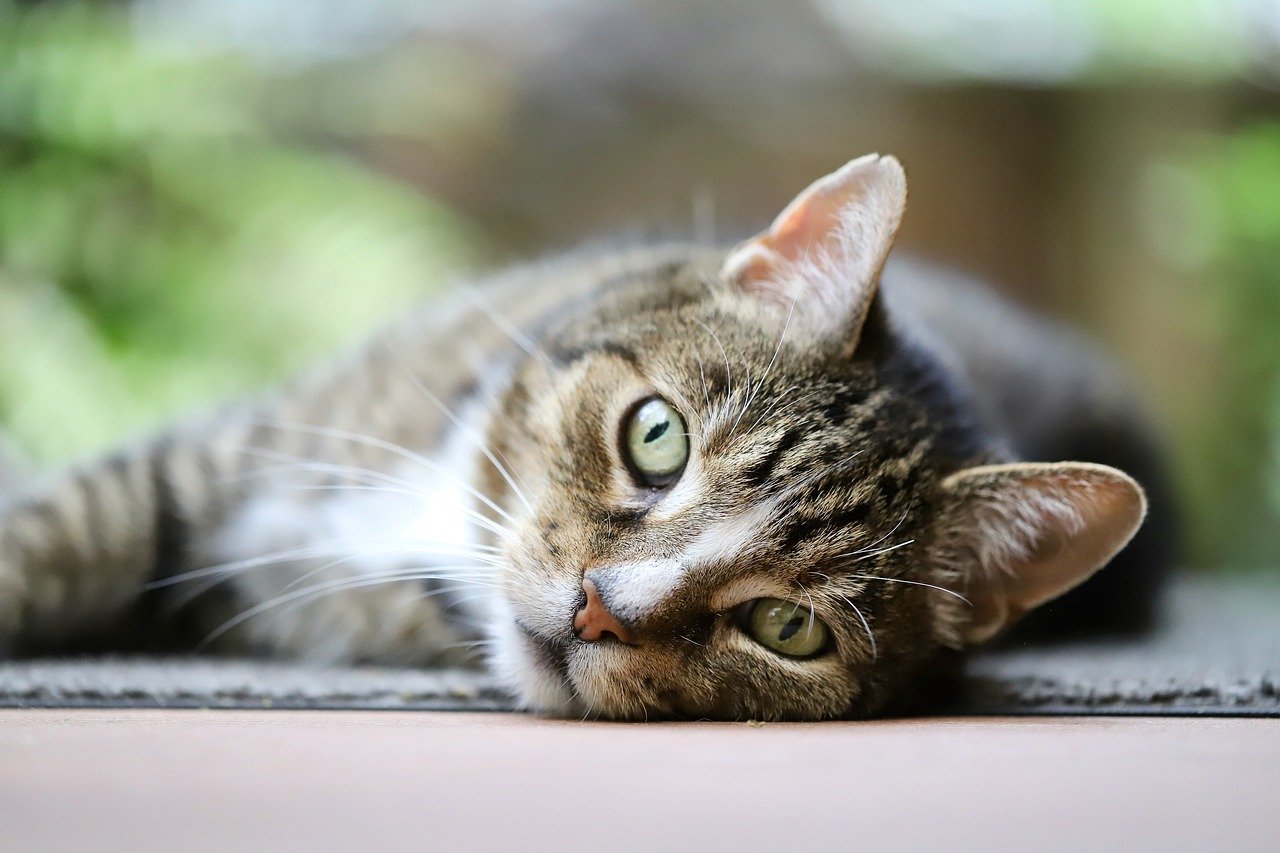
Care Requirements for Exotic Shorthairs
Caring for an Exotic Shorthair goes beyond just providing food and shelter; it involves understanding their unique needs to ensure they lead a healthy and happy life. These adorable felines, with their plush coats and charming personalities, require a tailored approach to grooming, diet, and health considerations. By paying close attention to these aspects, you can create a nurturing environment that allows your Exotic Shorthair to thrive.
One of the primary care requirements for Exotic Shorthairs is regular grooming. Their thick, luxurious fur needs to be brushed at least once a week to prevent matting and reduce shedding. Unlike their long-haired counterparts, Exotic Shorthairs have a dense coat that can trap dirt and oils, so using a high-quality brush designed for medium to long-haired cats is essential. Regular grooming not only keeps their coat looking fabulous but also provides an opportunity for bonding between you and your furry friend. It can be a calming ritual that both of you look forward to, enhancing your relationship.
When it comes to diet, Exotic Shorthairs thrive on a balanced diet rich in high-quality protein. Their unique body structure means they can be prone to obesity, so it's crucial to monitor their food intake and ensure they receive the right nutrients. A diet formulated for indoor cats can help manage their weight while providing the essential vitamins and minerals they need. Additionally, incorporating wet food into their diet can help with hydration, as these cats can sometimes be less inclined to drink water. Always consult with your veterinarian to tailor a diet plan specific to your cat's age, weight, and health needs.
Health considerations are another vital aspect of Exotic Shorthair care. Like any breed, they are prone to specific health issues, including respiratory problems due to their flat face and potential heart conditions. Regular veterinary check-ups are essential to catch any issues early and keep vaccinations up to date. It's also wise to discuss spaying or neutering your cat if you haven't done so already, as this can prevent certain health problems and contribute to a longer, healthier life.
| Health Issue | Description | Preventive Measures |
|---|---|---|
| Respiratory Problems | Due to their brachycephalic (flat-faced) structure, they can experience breathing difficulties. | Regular vet check-ups; avoid extreme temperatures. |
| Obesity | Prone to gaining weight if overfed or under-exercised. | Monitor food intake; provide regular playtime. |
| Heart Conditions | Can develop hypertrophic cardiomyopathy. | Regular vet visits; maintain a healthy diet. |
In conclusion, taking care of an Exotic Shorthair involves a holistic approach that encompasses grooming, diet, and health monitoring. By dedicating time and effort to these areas, you not only ensure that your cat remains healthy but also foster a loving and rewarding relationship. Remember, these affectionate creatures thrive on companionship and care, so your dedication will be richly rewarded with their love and loyalty.
1. How often should I groom my Exotic Shorthair?
You should groom your Exotic Shorthair at least once a week to keep their coat healthy and free of mats.
2. What is the best diet for an Exotic Shorthair?
A high-quality, protein-rich diet formulated for indoor cats is ideal, along with occasional wet food for hydration.
3. Are Exotic Shorthairs prone to any health issues?
Yes, they can be prone to respiratory problems, obesity, and heart conditions, so regular vet check-ups are essential.
4. How can I keep my Exotic Shorthair active?
Engage them in playtime with interactive toys and provide climbing structures to encourage physical activity.
Grooming Needs
When it comes to the Exotic Shorthair, grooming is not just a chore; it's an opportunity for bonding and ensuring your furry friend remains healthy and happy. With their plush, dense coat, these cats require regular grooming to keep their fur looking its best. Unlike their Persian cousins, Exotic Shorthairs have a short coat, but don’t let that fool you into thinking they don’t need care. In fact, their luxurious fur can still trap dirt, dander, and loose hair, which can lead to skin issues if not properly maintained.
To keep your Exotic Shorthair's coat in top condition, aim for a grooming session at least once a week. This will help to reduce shedding and prevent matting, which can be uncomfortable for your pet. During grooming, use a soft-bristle brush or a grooming glove to gently remove loose hair and debris. Not only does this keep their coat healthy, but it also provides a soothing experience for your cat, reinforcing the bond between you two.
Here are a few grooming tips to consider:
- Brushing: Brush your cat's coat weekly to minimize shedding and promote healthy skin.
- Bathing: While Exotic Shorthairs don’t need frequent baths, a bath every few months can help keep their coat clean and fresh.
- Nail Trimming: Regularly check and trim your cat's nails to prevent overgrowth and discomfort. Aim for every 2-4 weeks.
- Ear Cleaning: Check their ears weekly for wax buildup or dirt, and clean them with a vet-recommended solution.
In addition to these grooming practices, it’s crucial to keep an eye on their overall health. Regular grooming sessions are an excellent time to check for any unusual lumps, bumps, or skin irritations. If you notice anything concerning, don’t hesitate to consult your veterinarian. Remember, a well-groomed Exotic Shorthair is not only a joy to look at but also a happy and healthy companion!
So, grab those brushes and make grooming a fun and rewarding experience for both you and your Exotic Shorthair. It’s all about creating a routine that your cat loves and looks forward to. After all, who doesn't love a little pampering?
Q: How often should I groom my Exotic Shorthair?
A: It's recommended to groom your Exotic Shorthair at least once a week to keep their coat healthy and reduce shedding.
Q: Do Exotic Shorthairs need baths?
A: While they don’t require frequent baths, giving them a bath every few months can help maintain a clean and fresh coat.
Q: What tools do I need for grooming?
A: Essential grooming tools include a soft-bristle brush, grooming gloves, nail clippers, and a vet-recommended ear cleaning solution.
Q: How can I make grooming more enjoyable for my cat?
A: Make grooming a positive experience by using treats, gentle strokes, and plenty of praise. Start slowly and let your cat get used to the process.
Health Considerations
When it comes to the well-being of your Exotic Shorthair, understanding their health considerations is crucial. Just like any other breed, they can be prone to certain health issues that can affect their quality of life. Being proactive about their health can lead to a happier, longer life for your furry friend. One of the most common concerns for Exotic Shorthairs is their tendency to develop respiratory issues due to their flat faces, a characteristic known as brachycephaly. This means that they might experience breathing difficulties, especially in hot weather or during strenuous activities.
Additionally, Exotic Shorthairs may be predisposed to genetic conditions such as polycystic kidney disease (PKD) and hypertrophic cardiomyopathy (HCM). PKD is a condition that affects the kidneys and can lead to kidney failure if not managed properly. HCM, on the other hand, is a heart condition that causes the heart muscles to thicken, potentially leading to heart failure. Regular veterinary check-ups are essential to monitor for these conditions, as early detection can significantly improve treatment outcomes.
To help mitigate these health risks, here are some preventive measures you can take:
- Regular Vet Visits: Schedule annual check-ups to catch any potential health issues early.
- Balanced Diet: Feed your Exotic Shorthair a high-quality diet tailored to their age and health needs.
- Weight Management: Obesity can exacerbate health problems, so keep an eye on their weight and ensure they get regular exercise.
- Hydration: Ensure they have constant access to fresh water, as proper hydration is key to kidney health.
Moreover, it's important to be aware of the signs that may indicate health issues. For instance, if your Exotic Shorthair shows signs of lethargy, has difficulty breathing, or exhibits changes in appetite or weight, these could be red flags. Keeping a close watch on their behavior can help you catch problems before they escalate.
Lastly, don't forget about dental health! Exotic Shorthairs are also prone to dental issues, so regular brushing and dental check-ups can go a long way in maintaining their overall health. Investing time in their dental care can prevent painful conditions and ensure they have a healthy mouth.
1. What are the common health issues in Exotic Shorthairs?
Exotic Shorthairs can face several health issues, including respiratory problems due to their flat faces, polycystic kidney disease (PKD), and hypertrophic cardiomyopathy (HCM).
2. How often should I take my Exotic Shorthair to the vet?
It's advisable to take your Exotic Shorthair for an annual check-up, but if you notice any unusual behaviors or symptoms, consult your veterinarian sooner.
3. What should I feed my Exotic Shorthair?
Provide a balanced diet that is high in protein and low in carbohydrates, specifically formulated for cats. Consult your vet for recommendations based on your cat's age and health status.
4. How can I maintain my Exotic Shorthair's dental health?
Regular brushing, dental treats, and professional cleanings can help maintain your cat's dental health. Pay attention to any signs of dental disease, such as bad breath or difficulty eating.
Frequently Asked Questions
- What makes Exotic Shorthairs such affectionate pets?
Exotic Shorthairs are known for their gentle and loving temperament. They thrive on human interaction and often develop strong bonds with their owners. Their playful yet calm nature makes them ideal companions, as they enjoy spending time with people, curling up on laps, and following their humans around the house.
- How do I care for an Exotic Shorthair's grooming needs?
Grooming an Exotic Shorthair is essential to keep their plush coat looking its best. Regular brushing, ideally two to three times a week, helps prevent matting and reduces shedding. It's also important to check their eyes and ears regularly and keep their nails trimmed to ensure they stay healthy and comfortable.
- Are Exotic Shorthairs good with children and other pets?
Absolutely! Exotic Shorthairs are known for their friendly and adaptable nature, making them great companions for families with children. They typically get along well with other pets, including dogs and other cats, thanks to their sociable demeanor. Just remember to supervise interactions, especially between young children and pets, to ensure everyone is safe and happy.
- What health issues should I be aware of with Exotic Shorthairs?
Like all breeds, Exotic Shorthairs can be prone to certain health issues. Common concerns include respiratory problems due to their flat faces, as well as genetic conditions like polycystic kidney disease (PKD). Regular veterinary check-ups, a balanced diet, and maintaining a healthy weight can help mitigate these risks and keep your feline friend happy and healthy.
- How do I keep my Exotic Shorthair entertained?
Exotic Shorthairs enjoy playtime and mental stimulation, so providing them with a variety of toys is essential. Interactive toys, feather wands, and puzzle feeders can keep them engaged. Additionally, setting aside time each day for play can strengthen your bond and ensure they get the exercise they need to stay fit and happy.

